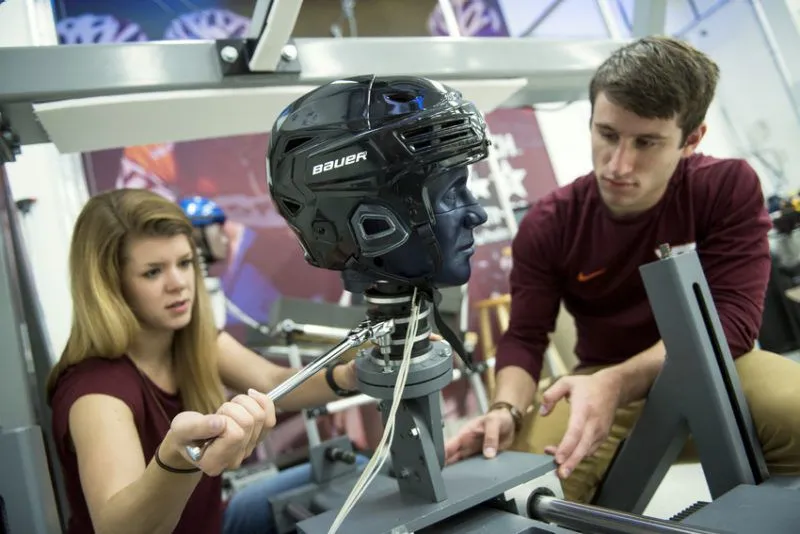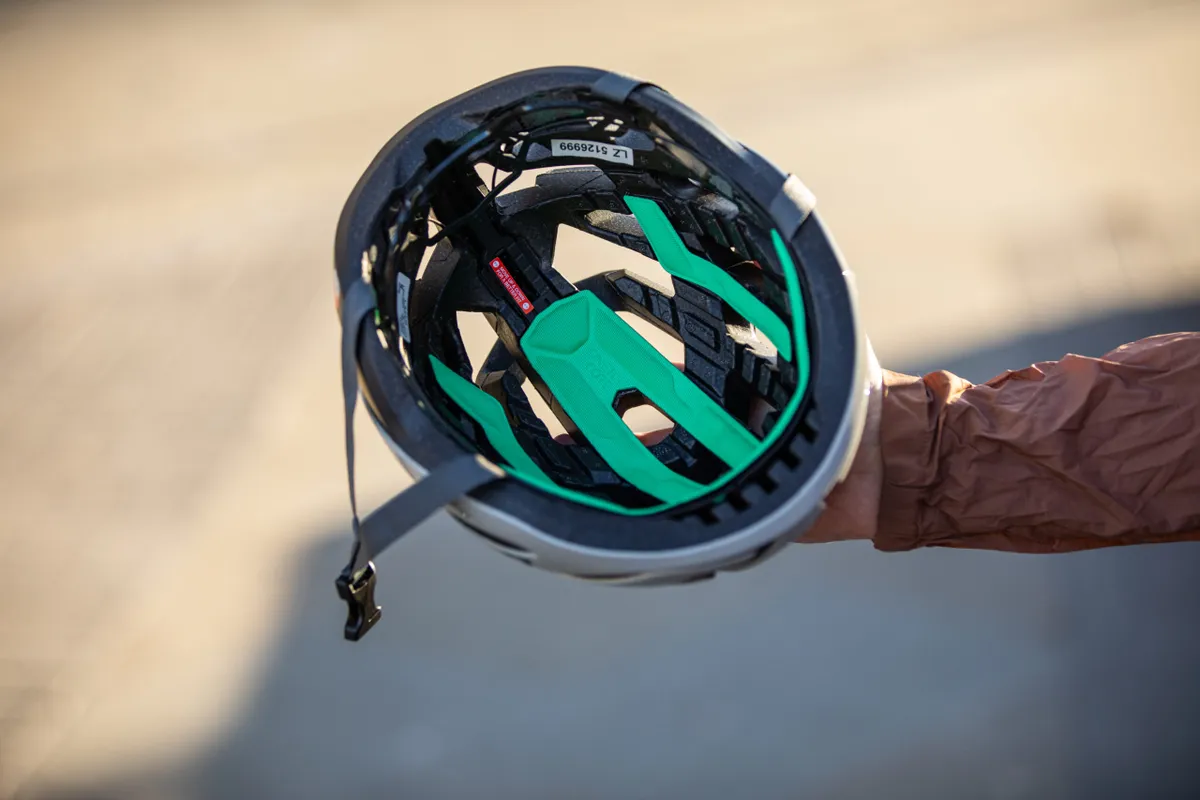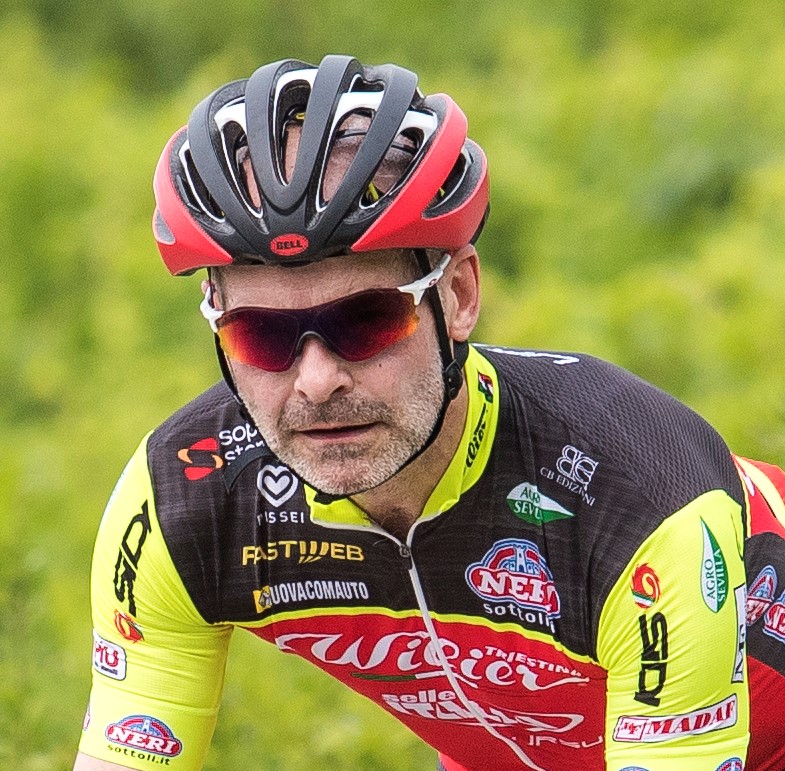Virginia Tech’s tests are carried out with funding support from the US-based Insurance Institute for Highway Safety, and are more comprehensive than the standard tests all helmets must pass before they are put on sale.
As well as straight-on impacts, Virginia Tech's tests include an assessment of oblique impacts and points of impact on the side of the helmet.
Virginia Tech assigns a score to each helmet based on its tests, with a lower score being better. It also gives each helmet a star rating out of five.
The lab updated how it awards stars earlier this year. Previous to this, the stars had been set to predetermined values against scores, with a lower score meaning less chance of having a concussion and a higher star rating. Now, the threshold for the stars is a floating target that is dictated by previously tested helmets.
In order to achieve a 5-star award, a design must now be within the top 50% of performers.
The full list of the 284 helmets tested can be filtered by the style of helmet and whether helmets are certified for use in other sports, such as snow sports or skateboarding.
- Read more: Are bike helmets about to get safer?
The 10 safest mountain bike helmets as rated by Virginia Tech
SQUIRREL_PLAYLIST_10207824

- Canyon Deflectr RLS
- POC Cularis
- Fox Racing Speedframe RS
- Fox Racing Speedframe Pro
- Bluegrass Jetro
- 6D Alterra
- Specialized Tactic 4 MIPS
- Sweet Protection Trailblazer MIPS
- Fox Dropframe Pro (2020 version and 2023 update)
- Sweet Protection Bushwhacker 2VI MIPS
- Read more: The best mountain bike helmets in 2025 reviewed by our expert testers
The 10 safest road cycling helmets as rated by Virginia Tech
SQUIRREL_PLAYLIST_10207825

- POC Cytal
- P2R A20
- MET Trenta 3K Carbon MIPS
- Giro Aries Spherical
- Sweet Protection Falconer 2VI MIPS
- Specialized Prevail 3
- Scott Split MIPS
- Sweet Protection Falconer Aero 2VI MIPS
- Giant / Liv Rev Comp MIPS
- Lazer G1 (Genesis) MIPS
- Read more: our pick of the best road bike helmets 2025, from entry-level to high-end
The 10 safest urban helmets as rated by Virginia Tech
SQUIRREL_PLAYLIST_10207826

Virginia Tech also tests helmets designed for ebike riders, or which have passed the additional, tougher Dutch NTA-8776 ebike helmet standard.
Electric bikes are a popular option for commuters, but their average speeds are higher than pedal-only cycles and they usually weigh more. Both lead to greater impact energy in a crash, so the NTA-8776 standard mandates more rigorous testing than the standard safety tests.
- HEXR Miden RLS
- Specialized Mode MIPS
- Unit 1 Aura
- Giant / Liv Novo MIPS
- Lazer Anverz NTA MIPS
- Abus Pedelec 2.0 MIPS
- Bern Major MIPS
- Sweet Protection Promuter MIPS
- Airnoggin Head Trauma Protection System
- Lazer Cruizer MIPS
- Bern Union MIPS
- Read more: our pick of the best commuter bike helmets
Industry recognition

A strong rating in Virginia Tech's testing has become a badge of honour and a significant marketing tool for helmet makers.
The profile given to the results of its tests has resulted in most helmet makers now submitting at least some of their helmets for testing.
Some brands, such as Specialized, have dived in wholesale and you'll see a rating for most of their helmets – other brands have been more circumspect.
But even those such as Kask and Rudy Project, which have preferred to let their internal testing do the talking, have now had at least some of their helmets tested by Virginia Tech.
It's worth noting that even brands that have had their helmets tested don't rely solely on Virginia Tech's ratings – they all perform a battery of their own tests to measure their helmets' safety.
Giro, for instance, says: "We appreciate Virginia Tech’s efforts to help riders make informed choices with an independent rating system based on their unique testing.
"We welcome Virginia Tech's quantitative approach to providing consumers with additional information beyond the certification all our helmets meet or exceed.”
How does Virginia Tech test its helmets?

Virginia Tech’s testing uses a standardised methodology. This was developed in 2018 and has been used in all its testing since then.
The Virginia Tech test attaches the helmet to a headform on a drop tower. This is the standard tool used to test the safety of bike helmets.
It drops the helmet down a slider and lands it on a steel anvil. Virginia Tech covers this with coarse sandpaper, which it says helps simulate real-life road conditions.
Tests are carried out at two different impact speeds and in six positions on the helmet, including on the rim.
The method tests oblique impacts as well as those taken head-on. Each test is repeated, for a total of 24 tests on each helmet.
Accelerometers are positioned inside the headform on which the helmet is mounted to measure the linear and rotational forces acting on impact.
A formula is then used to convert this data into an overall score, with a lower score being better.
This overall score no longer directly determines a helmet's star rating, with a helmet also needing to be in the top 50% of those tested by the lab.
Virginia Tech says its testing is more complete than standard tests, which do not include impacts on the rim, even though this is often where contact will occur in a crash.
MIPS helmets still dominate the rankings, but there are alternatives

The majority of cycling helmets across all disciplines now include additional features to protect the head, over the standard expanded polystyrene (EPS) foam shell.
Helmets that use one of the variants of the MIPS sliding plane protection system dominate the top of the rankings, although this may reflect the fact that the majority of cycling helmets now include MIPS.

MIPS is designed to help dissipate energy in oblique impacts so that less impact force is transferred to the rider. Many bike crashes involve oblique impacts to the head and Virginia Tech’s testing suggests extra protection from this type of crash is an important feature.

There are more alternatives to MIPS than a few years ago, though. Lazer's KinetiCore system includes crumple zones in the EPS shell and forgos MIPS. The 6D ATB-2T MTB helmet also has its own ODS impact protection system.
Meanwhile, the Airnoggin urban helmet is inflatable, enabling you to fold it down when not in use, but it is still four-star rated by Virginia Tech.
Some helmet makers, such as Kask, largely shun MIPS, preferring to test their helmets to the WG11 rotational impact test standard.
Kask claims the headform used in the WG11 test better reflects what happens in real-life crashes than the standard headforms used in most testing.





